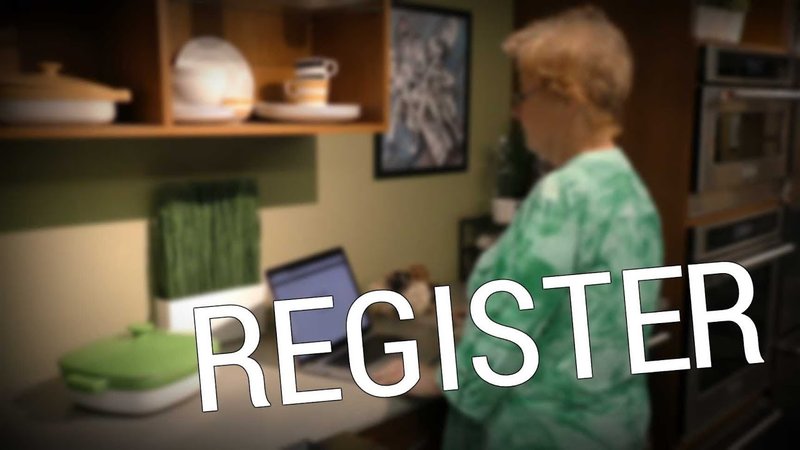
Think of this situation like borrowing an expensive remote control for a smart TV, but not owning the TV itself. Who holds the secret codes? Who does the warranty belong to? When we talk about registering a Whirlpool dishwasher purchased by a landlord, it’s not just about form-filling; it’s about who legally claims ownership and responsibility. Let’s break down how appliance registration works in rentals and why it might matter to you as a tenant.
Understanding Appliance Registration: Who Can Register and Why?
Registering a Whirlpool dishwasher—or any appliance, really—is more than just a checkbox on a form. When you register a dishwasher, you essentially link the product with the person responsible for it. This connection matters because it activates warranties, helps with troubleshooting, and sometimes offers direct support from the manufacturer.
Here’s the thing: manufacturers usually expect the product owner — the person who bought the dishwasher — to register it. That’s typically the landlord in rental cases. Registering also means that if there’s a recall or software update, the registrant gets notified. So if the landlord doesn’t share that information with the tenant, it can be a blind spot.
If a tenant tries to register the dishwasher, Whirlpool might ask for purchase proof or serial number info. But since the landlord owns the receipt and bought the unit, they are the ones technically eligible to register. This makes sense legally but can feel like a catch-22 if you, as a tenant, want direct access to support.
Why Tenants Might Want to Register a Landlord’s Dishwasher
You might be wondering, “Why should I even care about registering a dishwasher I didn’t buy?” It’s a fair question. Let me explain.
Tenants often get stuck in a middle ground. You use the dishwasher daily, rely on it—sometimes heavily—but you don’t hold the purchase paperwork. Registering the appliance can seem like a way to:
- Get faster support: If the dishwasher acts up, being the registered user speeds up troubleshooting calls or warranty claims.
- Access warranty benefits: Extended warranties or specific coverage periods might only kick in with registration.
- Receive updates and recalls: Modern Whirlpool dishwashers might have software features or safety recalls that require direct notification.
Honestly, it feels empowering to directly manage something you depend on—even if you technically don’t own it. But here’s the rub: registering without the landlord’s cooperation might raise issues, especially if Whirlpool requires proof of purchase.
Whirlpool’s Policy on Appliance Registration and Ownership
Whirlpool, like many appliance makers, generally asks for proof that you own the product before completing registration. This isn’t just red tape; it protects both the brand and consumers from fraud or warranty misuse.
Here’s how it usually works:
- Purchase information needed: When registering, you provide the model number, serial number, and date of purchase.
- Proof of purchase: This could be a receipt or invoice showing the dishwasher was bought by the registrant.
- Owner contact details: Whirlpool expects the registrant’s contact info to tie to the warranty and any future correspondence.
Since landlords typically hold the purchase documents, they’re best positioned to register the dishwasher. Whirlpool’s system may allow multiple contact addresses, but the primary owner usually remains the purchaser. If a tenant tries registering without the landlord’s purchase info, the application might be rejected or flagged.
What Tenants Can Do If They Want to Register the Dishwasher
So you want to register that Whirlpool dishwasher, but you’re stuck without purchase paperwork. Don’t worry—there are practical steps you can take.
- Talk to your landlord: This is the simplest way. Ask if they’re willing to register the dishwasher under their name or share paperwork to help you register.
- Request a transfer or shared registration: Some landlords might be open to adding you as an authorized user on the Whirlpool registration.
- Keep maintenance records: Even if you can’t register, document any repairs or service you arrange, so the appliance’s history is clear.
- Contact Whirlpool support: Explain your situation. Sometimes they can create a service profile for tenants or guide you through troubleshooting without registration.
Here’s a little tip: landlords who actively register appliances might have fewer headaches when things break down. Encouraging your landlord to do so helps everyone.
What Happens If a Tenant Registers Without Landlord Permission?
Trying to register a Whirlpool dishwasher without the landlord’s okay or proof of purchase is like trying to claim a car title without paperwork—it’s tricky and often runs into roadblocks.
Some potential issues include:
- Registration denial: Without valid purchase documentation, Whirlpool may refuse the registration.
- Warranty complications: If service is needed, Whirlpool might require the registered owner’s consent before repairs or replacements.
- Legal gray zones: The dishwasher is still owned by the landlord, so any unauthorized registration could raise questions in case of disputes.
So honestly, going solo on this isn’t usually worth the hassle. It’s better to loop in your landlord or Whirlpool customer service to avoid headaches.
How Registration Helps in Troubleshooting and Warranty Claims
Here’s why all this registration talk matters beyond paperwork: it affects what happens if your dishwasher breaks.
Registered products often get:
- Priority customer support: Whirlpool knows who you are and your appliance’s history, speeding up diagnosis.
- Warranty claim tracking: Registration keeps a record of start and end dates, preventing surprises when you request repairs.
- Software updates: Some modern dishwashers may require syncing or resetting via apps that tie into registered accounts.
If you face an issue with a landlord-supplied Whirlpool dishwasher, having it registered—even if by the landlord—can smooth out troubleshooting steps. It can speed up getting a technician or replacement parts.
Alternatives to Registration for Tenants
If registration ends up being a no-go, don’t panic. There are other ways you can manage your Whirlpool dishwasher effectively.
- Keep the manual handy: Every Whirlpool dishwasher comes with instructions and troubleshooting tips that cover resets, sync, and battery replacement (if applicable).
- Use Whirlpool’s support tools: Their website and apps sometimes let you search by model number for guides, even without registration.
- Request landlord’s cooperation in repairs: For warranty work, landlords usually handle it. Make sure you report issues promptly.
- Consider third-party repair services: Outside warranty, local technicians often can help with troubleshooting or fixes.
Honestly, while registration is neat, it’s not the only way forward. Good communication with your landlord and knowing your dishwasher model inside out can make a big difference.
Wrapping It Up: Who Should Register the Whirlpool Dishwasher in Rentals?
At the end of the day, the landlord is the primary owner and the one who should register the Whirlpool dishwasher they purchased. This setup protects all parties: the manufacturer, landlord, and tenant. It ensures warranties kick in properly, support flows smoothly, and product updates reach the right inbox.
That said, tenants aren’t out of luck. Open communication with landlords and reaching out to Whirlpool support can keep you covered without jumping through hoops to register yourself. You’re the dishwasher’s daily user, and that counts a lot—even if you don’t hold the original receipt.
So, next time you find yourself puzzling over “Can tenants register Whirlpool dishwashers purchased by landlords?” you’ll know the answer’s layered but fair: the landlord registers, the tenant benefits. And sometimes, a quick chat with your landlord can unlock the best support for your sparkling clean dishes.
